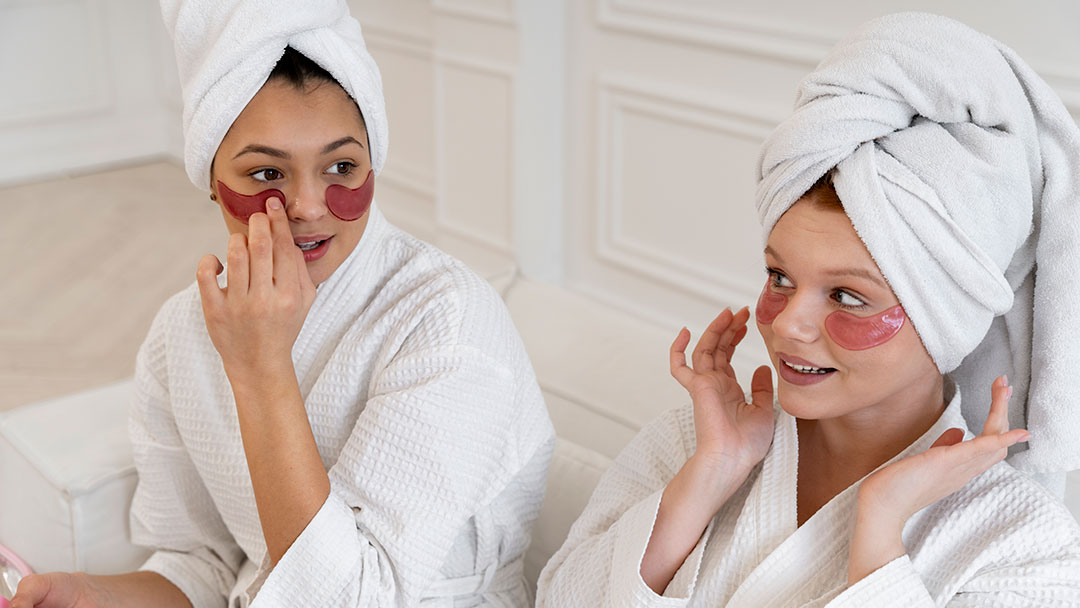In response to the upsurge in children using anti-ageing products, health experts have issued a stark warning of the trend.
Thanks to TikTok and social media, young people are rapidly adopting the trend of ‘preventative’ anti-aging products. With pester power at full throttle, kids are pleading for peels, serums, elixirs, and moisturisers, all in the name of preventing their skin from ageing.
From #GRWM (GetReadyWithMe) reels to 10-step beauty routines, the kids’ beauty industry is exploding.
According to clinical nutritionist Dr Vincent, a leading health and wellness expert and founder of Renovatio, all skincare products are not the same, and they certainly should not be used on children unless they are specifically formulated for younger skin.
“The consequences of applying anti-aging skin cream to a child go well beyond potential allergic reactions. Products designed for older skin can cause significant long-term damage to a child’s skin,” said Dr Vincent.
5 reasons why kids should not use anti-ageing products
Fragrances and preservatives
Anti-ageing skincare often includes synthetic fragrances and preservatives that can cause allergic reactions, rashes or dermatitis in children. Since children’s skin barrier is not fully developed, it is more prone to react negatively to these additives.
Hormonal disruptors
Some anti-ageing products contain ingredients that act as endocrine disruptors, such as certain preservatives such as parabens and chemicals including phthalates. These substances can interfere with hormone function and potentially disrupt the natural hormonal development of children.
pH imbalance
Children’s skin has a different pH balance compared to adult skin. Anti-ageing products are formulated for adult skin pH levels and can disrupt the natural pH balance of children’s skin, causing dryness, irritation and other dermatological issues.
Unnecessary exposure to chemicals
The primary function of anti-ageing products is to address signs of aging such as wrinkles, fine lines and age spots, which are irrelevant to children. Applying these products to children exposes them to unnecessary chemicals that offer no benefit and could potentially cause harm. Children require skincare products that cater to their unique needs, which are generally milder and free from harsh chemicals.
Long-term health risks
“The long-term effects of using anti-ageing products on children’s skin are not well studied. Prolonged exposure to these potent ingredients could lead to unforeseen health issues or skin problems as the child grows older,” Dr Vincent said.
“Products manufactured overseas in countries with less regulated safety environments are particularly problematic. Some even contain harmful ingredients like ‘bleach’.”
Inappropriate use
Anti-ageing products often contain powerful active ingredients such as retinoids, alpha hydroxy acids (AHAs), beta hydroxy acids (BHAs), peptides and antioxidants. These ingredients are formulated to penetrate deeply and stimulate cell turnover, which can be too harsh for children’s delicate and sensitive skin, leading to irritation, redness, peeling and even burns.
Children’s skin requires gentle and appropriate care that suits its delicate nature. It is crucial to use products formulated specifically for children to ensure their skin remains healthy and protected from potential harm.
Sensitivity and irritation
Children’s skin is thinner and more sensitive than adult skin. The strong ingredients in anti-ageing products can cause adverse reactions such as contact dermatitis, allergic reactions and increased skin sensitivity.
Children’s skin lacks the resilience to handle these potent compounds safely.
Have your kids asked for anti-ageing products?
Servicing Brisbane, Gold Coast, Sunshine Coast and beyond, Kids on the Coast is an online guide for parents with kids events, attractions & things to do with kids, schools and education, school holiday guides, health & wellbeing for families, parenting and lifestyle news located on Gold Coast, Sunshine Coast & Brisbane, QLD.



